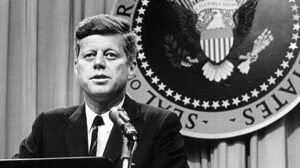In a move stirring both curiosity and controversy, President-elect Donald Trump announced on Sunday his intention to release classified documents related to the assassinations of President John F. Kennedy, Senator Robert Kennedy, and civil rights leader Martin Luther King Jr. The announcement comes as Trump prepares to return to the White House for a second, non-consecutive term.
Speaking at a rally in Washington, D.C., Trump declared, “In the coming days, we are going to make public the remaining records related to the assassinations of President John F. Kennedy, his brother Robert Kennedy, Dr. Martin Luther King Jr., and other topics of great public interest.”
While the former president did not detail which specific documents would be declassified, his promise rekindles a long-standing debate about the transparency of historical records tied to these pivotal events in American history.
A History of Promises and Delays
This is not Trump’s first pledge to unveil these classified files. During his first term, from 2017 to 2021, he authorized the release of some JFK-related records but withheld others, citing national security concerns after pressure from the Central Intelligence Agency (CIA) and the Federal Bureau of Investigation (FBI).
President Kennedy, often referred to as JFK, was assassinated in 1963, and official investigations concluded that a lone gunman, Lee Harvey Oswald, was responsible. However, widespread skepticism about the “lone gunman” theory persists, with polls consistently showing that many Americans believe Kennedy’s death was part of a broader conspiracy.
Also, read: Young, Famous & African Returns for Drama-Filled Season 3 on Netflix
Robert F. Kennedy and Dr. Martin Luther King Jr. were both assassinated in 1968. Official accounts attribute RFK’s death to Sirhan Sirhan, while King’s assassination was pinned on James Earl Ray. Yet, theories suggesting multiple gunmen and potential government involvement have circulated for decades.
Renewed Scrutiny
Adding to the intrigue, Trump’s incoming health and human services secretary-designate, Robert F. Kennedy Jr., has previously voiced suspicions about the CIA’s involvement in his uncle JFK’s assassination. Kennedy Jr. also disputes the official account of his father’s death, alleging the involvement of multiple shooters. The CIA has repeatedly dismissed such claims as baseless.
The release of these documents, if it occurs as promised, could either deepen existing conspiracy theories or provide clarity to long-standing mysteries. Trump’s announcement comes at a time when public trust in government institutions is fraught, potentially fueling renewed debates over transparency and accountability.
Uncertain Outcomes
Despite Trump’s promise, it remains unclear whether all files will be fully declassified. During his rally, he stopped short of committing to a blanket release, leaving some wondering if national security concerns might once again limit what the public will see.
For now, Americans must wait to see if Trump’s latest pledge will finally lift the veil on one of the most debated chapters in U.S. history—or if the mysteries surrounding these assassinations will endure.

